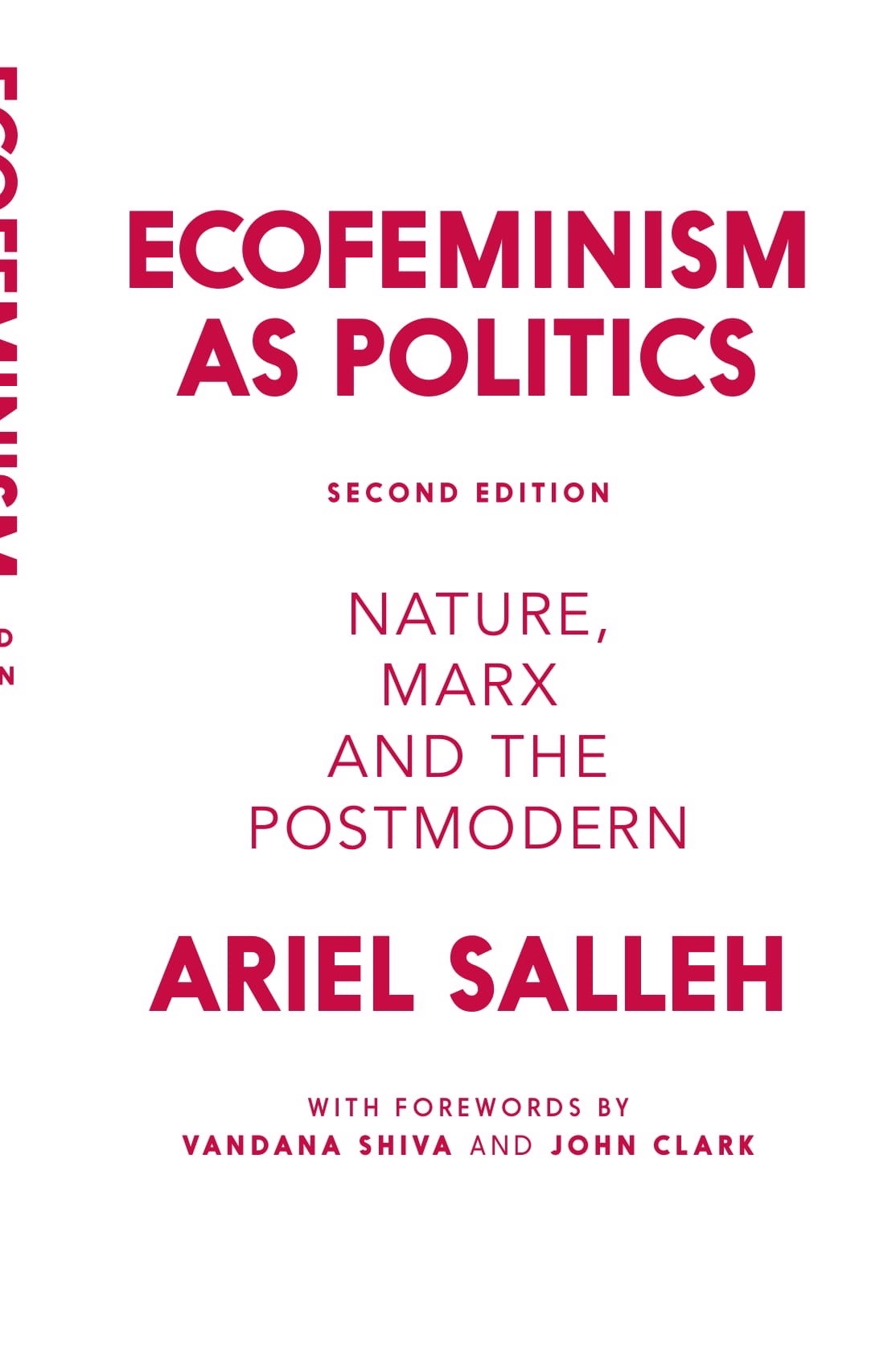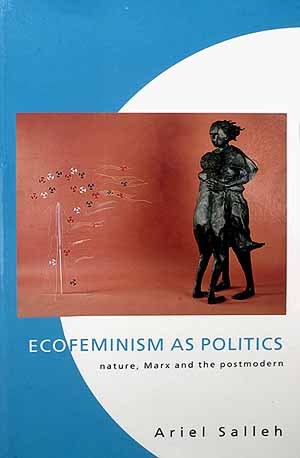|
20th ANNIVERSARY EDITION 2017
|
Ecofeminism as Politics is now a classic, being the first work to offer a joined-up framework for green, socialist, feminist and postcolonial thinking, showing how these have been held back by conceptual confusions over gender. Originally published in 1997, it argues that ecofeminism reaches beyond contemporary social movement ideologies and practices, by prefiguring a political synthesis of four-revolutions-in-one: ecology is feminism is socialism is postcolonial struggle. Ariel Salleh addresses discourses on class, science, the body, culture and nature, and her innovative reading of Marx converges the philosophy of internal relations with the organic materiality of everyday life. This new edition features forewords by Indian ecofeminist Vandana Shiva and US philosopher John Clark, a new introduction, and a recent conversation between Salleh and younger scholar activists. ‘One of the most original and important thinkers in the international political ecology field. Salleh unveils the blind spot at the root of contemporary social and ecological crises and her lucid call for an “embodied materialism” enlightens like no other framework I know.’ ‘Neoliberalism has not eliminated poverty, nor discrimination of women, nor exploitation of the Earth; neither economists, politicians, nor theoreticians know a way out. Marxists ignore both nature’s and women’s contribution to the production of wealth, but as ecofeminists show, this is the lost key to building Another World.’ ‘The combination of eco-socialist, feminist and decolonial perspectives is analytically and politically thrilling. Ecofeminism as Politics offers an integrative understanding of our world, its multiple processes and crises, and possibilities for change in the post-development era.’ ‘A powerful critique of both anthropocentrism and the androcentric thinking that permeates scholarship and activist discourses on the left. This social movement synthesis is an essential read for those seeking solutions to our deepening systemic crises.’ |
See: http://www.zedbooks.net/shop/book/ecofeminism-as-politics/
See Chapter 1 Ecology Re-Frames History
Heloise Thomas (2018) Review of Ecofeminism as Politics: Open Edition Journals (French. FR)
Nigel Lee (2000) 'A Triple Review', Capital & Class, No. 72, 215-217.

